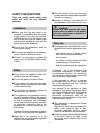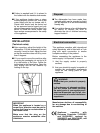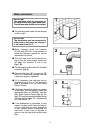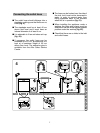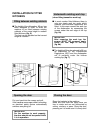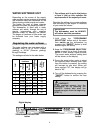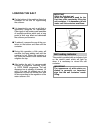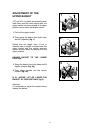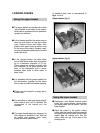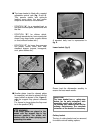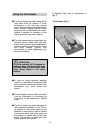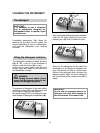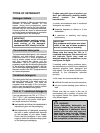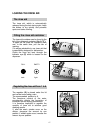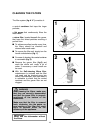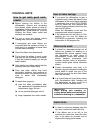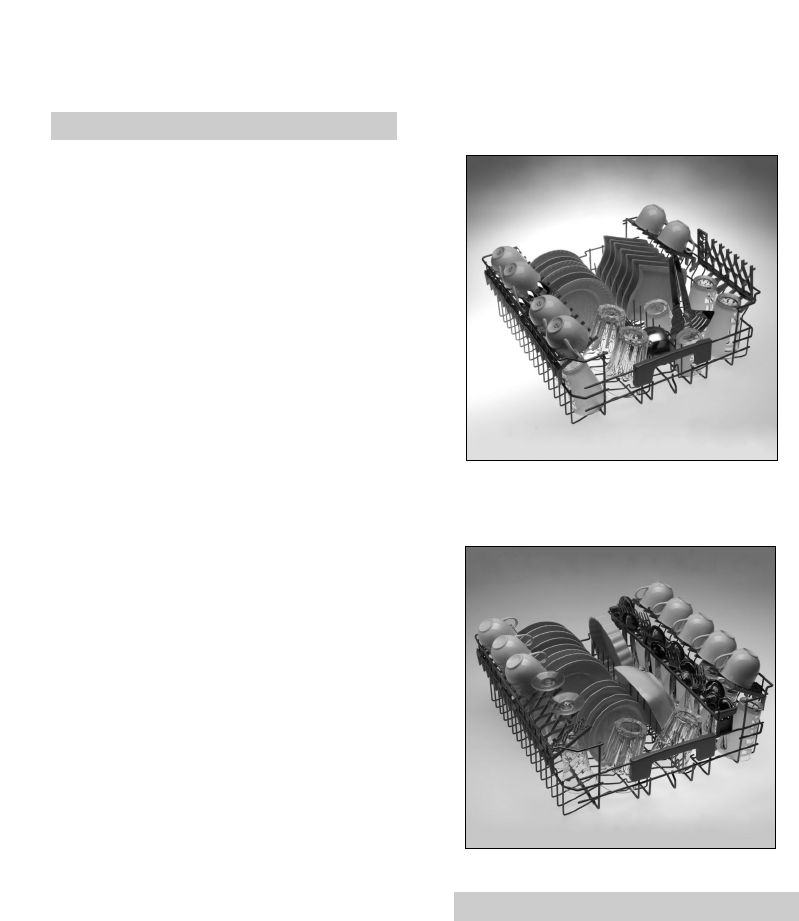
12
A standard daily load is represented in
figs. 1 and 2.
Upper basket (fig. 1)
Upper basket (fig. 2)
Using the lower basket
■ Saucepans, oven dishes, tureens, salad
bowls, lids, serving dishes, dinner plates
and soup plates can be loaded into the
lower basket.
■ Place the cutlery in the plastic cutlery
holder with the handles pointing upwards
and place the cutlery holder on the lower
basket (fig. 6) making sure that the
cutlery does not get in the way of the
rotating arms.
LOADING DISHES
Using the upper basket
■ The upper basket is provided with mobile
racks hooked to the sides of the basket,
which can be regulated into two positions:
upright and lowered.
■ In the lowered position the racks may be
used for such items as: tea and coffee
cups, kitchen knives and ladles. Also
glasses with stems may be safely hung
on the ends of the racks. Glasses, cups,
saucers and dessert plates may be loaded
under the racks.
■ In the upright position the racks allow
you to load dinner plates and soup plates
up to a maximum diameter of 19 cm.
Plates should be loaded vertically with
the underside of the plate towards the
back of the dishwasher with a space
between each plate to allow water to
pass freely.
■ It is advisable that the plates loaded into
the dishwasher together be the same
size in order to utilize total basket capacity.
■ Plates may be loaded in a single row or
in two rows.
■ It is advisable to load large plates slightly
tilted towards the front to facilitate the
introduction of the basket into the
machine.
■ The upper basket has been designed to
offer maximum flexibility in use and can
be loaded with glasses, cups, small
plates and small-sized bowls.
1
2



